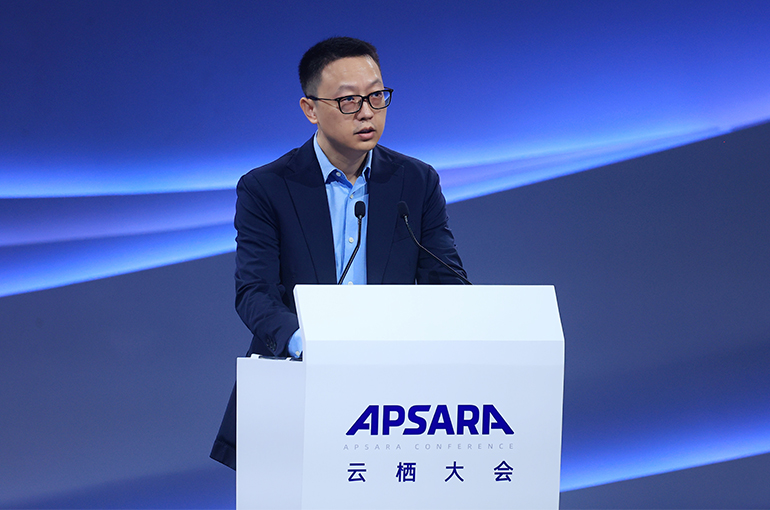 Alibaba’s Cloud Computing Arm to Keep Slashing AI Model Prices, CEO Says
Alibaba’s Cloud Computing Arm to Keep Slashing AI Model Prices, CEO Says(Yicai) Sept. 19 -- Alibaba Group Holding’s cloud computing unit will go on lowering the cost of artificial intelligence model inference, as this is key to widespread AI adoption, according to Chief Executive Officer Eddie Wu.
“The cost of inference is a critical factor for application proliferation, and Alibaba Cloud will continue to further reduce user costs,” Wu said in a keynote speech at the Apsara Conference, the unit’s annual flagship event.
“In the past year, the price of Qwen API on Alibaba Cloud’s Model Studio has dropped by 97 percent,” said Wu, who has been in post since last September. “The lowest cost for deploying a million tokens is now just CNY0.50” (0.007 US cents).
“The cost of model inference has decreased exponentially, outpacing the cadence of Moore’s Law,” Wu pointed out. Moore's Law states that computing power doubles about every two years.
With global AI rivalry growing, businesses such as Alibaba are racing to cut costs and scale infrastructure to meet the demand for AI computing power. The move also reflects a broader trend in the industry, where the focus is shifting from mere AI capability to cost efficiency and accessibility.
Hangzhou-based Alibaba Cloud has seen more than half of the new demand for computing power coming from AI, with AI computing needs leading this demand, Wu noted, adding that “this trend is set to grow exponentially.
“Despite Alibaba Cloud’s substantial investments in AI computing capacity over the past year, it still falls short of meeting our customers’ voracious demand,” Wu noted.
The next generation of models must have a larger, more universal, more generalized knowledge system and more complex and multi-layered logical reasoning capabilities to achieve true artificial general intelligence, according to Wu.
“Alibaba Cloud is investing, with unprecedented intensity, in the research and development of AI technology and the building of its global infrastructure,” he said. “We are rebuilding future-oriented advanced AI infrastructure from chips, servers, networks, storage, to cooling, power supply, and data centers.”
The investment threshold for building advanced models and staying competitive will reach billions or even tens of billions of US dollars, Wu noted.
"The most significant opportunity for AI lies beyond smartphone screens," he said. “AI will take over the digital realm and transform the physical world.”
In addition, "the evolution of AI computing is accelerating and becoming the dominant force in computing architecture," Wu said. “The CPU-dominated computing paradigm of the past few decades is rapidly transitioning towards an AI-centric one led by GPUs. In the future, almost all software and hardware will possess inferential capabilities.”
Wu also noted that AI is transforming the auto sector. “Robotics will be the next industry to undergo massive change,” he said. “In the future, all mobile objects will become intelligent robots, be it factory robotic arms, construction cranes, warehouse handlers, firefighting robots, or household pets.”
Editor: Martin Kadiev